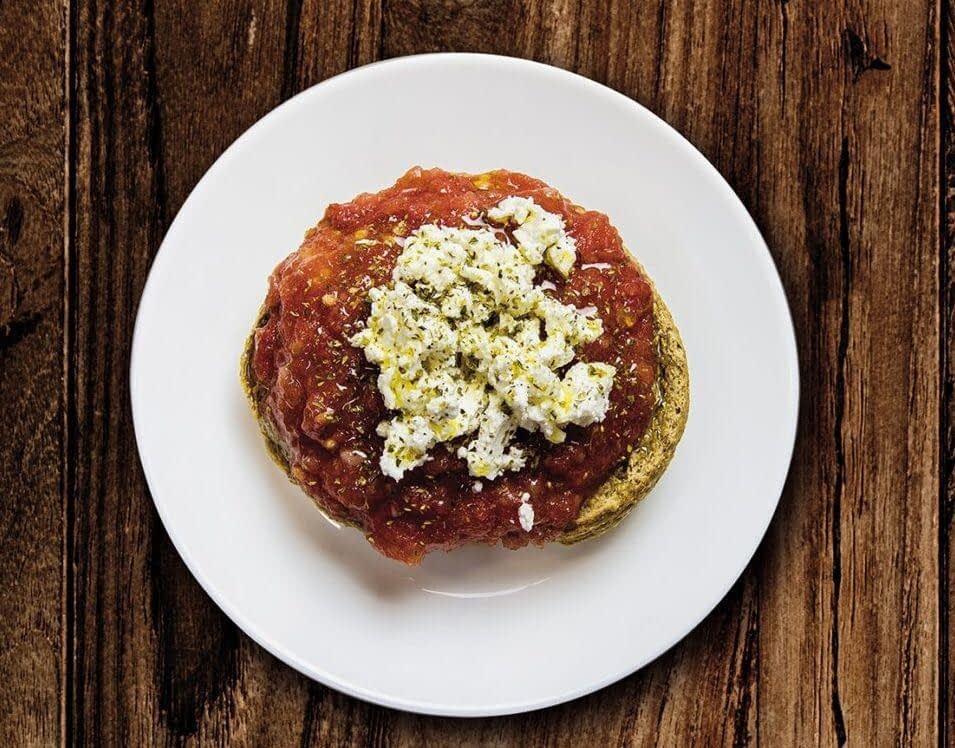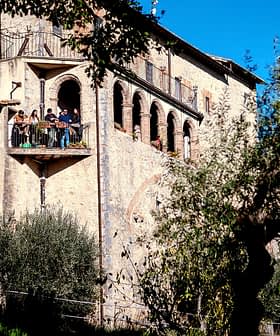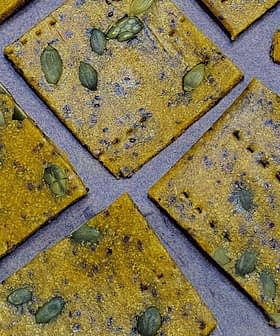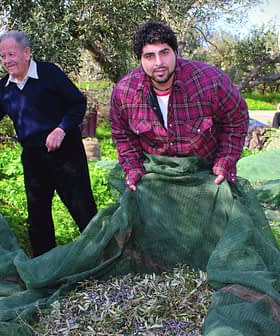 5.9K reads
5.9K readsNews Briefs
Dakos, the Cretan Meze, Is Having a Moment

The Greek salad is a popular summer dish, but the Cretan specialty dakos is gaining recognition, ranking first on the world’s best-rated salads list. Dakos is a simple yet nutritious dish made with a barley rusk, tomatoes, cheese, and olive oil, providing a balanced meal with a high nutritional profile.
The Greek salad (or horiatiki), long praised for its unique combination of flavors and nutritional value, is a summer staple popular among locals and tourists alike.
However, dakos, a salad widely considered a Cretan specialty, has started gaining traction, becoming a serious contender with the Greek salad adorning tables in homes and restaurants.
A portion of the traditional dakos dish accounts for 20 percent of the daily need of the human body for proteins and 20 percent in dietary fibers.
Dakos topped the list of the world’s best-rated salads of Taste Atlas this year, an experiential travel guide aiming to promote local food and traditional dishes worldwide. Last year, dakos came in second place on the same list.
Once considered food for the poor, dakos is a simple dish comprising a dry barley rusk, grated or chopped ripe tomatoes and crumbled feta or Cretan xinomyzithra cheese, dressed with generous splashes of extra virgin olive oil.
See Also:Cooking With Extra Virgin Olive OilThe rusk is usually sprinkled with water to soften it. Some dish variations also include table olives, dry oregano and capers.
“Simple is the best way to describe Cretan cooking,” food expert Lane Nieset wrote in Food and Wine magazine.
“The main ingredients may stay the same, but Cretans can concoct multiple cookbooks out of a short pantry list of items,” she added. “Barley rusks, for example, double as croutons in salad or form bruschetta-like dakos.”
According to Anastasios Papalazarou, an Athens-based dietician and nutritionist with more than 25 years of experience, the simplicity and high nutritional profile characterize the salads of Greek cuisine.
“[The salads] are packed with nutrients and are super easy to make using inexpensive and seasonal ingredients,” Papalazarou told Olive Oil Times.
“However, they are not very popular worldwide, possibly because quality ingredients needed to make the salads are difficult to come by in countries away from the Mediterranean,” he added.
Papalazarou said that the dakos salad boasts a variety of nutrients, including plant protein, fibers and vitamins.
“A portion of the traditional dakos dish accounts for 20 percent of the daily need of the human body for proteins and 20 percent in dietary fibers,” he said. “The tomato, on the other hand, is rich in lycopene, a precious carotenoid, and also offers vitamins C and E, antioxidants. Additionally, the dish is an excellent source of monounsaturated fats due to the use of olive oil.”
See Also:Olive Oil is the Essence of Traditional Greek Dishes on Christmas EveWhile Greek salad is more effective at hydrating the human body, Papalazarou added that the dakos salad makes for a more balanced meal.
“Both dishes are of high nutritional quality,” he said. “Dakos boasts a larger quantity of carbohydrates and vitamins because of the rusk and is a more complete and filling meal.”
“The Greek salad, on the other hand, provides more hydration since it boasts a larger quantity of veggies and is a better source of flavonoids and selenium thanks to the cucumber and onion it contains,” Papalazarou added.
In Heraklion, Crete, Yiannis Somarakis runs the Kyparissi tavern, serving local specialties for decades. He said dakos is popular among locals, while foreigners are just starting to learn about it.
“Locals, especially the young, often opt for a dakos salad,” Somarakis told Olive Oil Times. “We make it with tomatoes from our garden and feta cheese. We do not wet the rusk with water. Instead, we let the olive oil and the juice of the tomatoes slowly soften the rusk.”
“Our customers from abroad, on the other hand, are quite familiar with the Greek salad but not so much with dakos,” he added. “Usually, I have to explain to them what dakos is. But, once they try it, they love it.”
Somarakis said dakos can be served as a salad or an appetizer, noting that the exact origin of the dish has yet to be fully traced.
“There is no definite consensus that dakos is of Cretan origin,” he said. “It may have originated in Crete or another place in Greece. After all, it is a quick and easy meal that can be found in every corner of the country.”
The dish’s versatility also allows for alterations to suit different dietary requirements. Papalazarou suggested some tips for a lighter version of dakos without compromising taste.
“Dakos is packed with nutrients but can also be a calorie-rich meal,” he said. “Those looking to reduce their calorie intake can replace the feta or xinomyzithra with a lower-fat cheese, add only one tablespoon of olive oil, and use a smaller rusk as the basis of the dish while increasing the quantity of the tomato and olives.”









